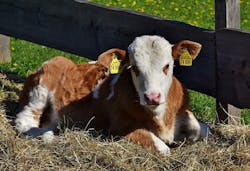Dairy Farmer Makes Fertilizer Using Worms, Wastewater
A Washington state dairy farmer has developed an alternative approach to the standard lagoon and pump truck system utilized in order to store the large volume of water necessary to provide for his cows and keep the produced milk clean. He does so using worms.
Austin Allred, 28, of Royal City, Wash., has implemented a worm-based filtration system at his dairy farm in order to better manage the wastewater involved in his dairy processes.
“Our practice has always been that we are responsible for every drop of water that we utilize, or that happens to come onto our property, from the milking parlor to the rain on the roof,” Allred said. “For obvious reasons, I think every dairy farmer doing what we are doing is looking for an alternative. The tanker trucks are not efficient. That whole thing, the lagoons, and sediment management and tanker trucks is the most intensive party of dairying these days.”
Allred fills two acres of 5-ft tall cisterns first with rocks and wood chips to half the capacity available, then adds the “worm media.” Wastewater is run through these worm filters via sprinkler system. In all, the farm dons approximately 81,000 sq ft of worm beds, which are capable of fielding roughly 200,000 gal of water every day.
The worms feed on organic materials present in the wastewater, and the resulting byproduct is a garden-ready fertilizer known as worm castings. Allred cycles out the top layer of worm castings every 18 months. Roughly 2,000 cu yards of castings are produced each cycle, which can be used at the farm or sold elsewhere.
The process also contributes positively to the farm’s irrigation, as the resulting water run through the worm filtration process is finer, allowing it to better navigate the network of pipes and sprinklers. Allred also claims that 90% of nitrogen, 70% of phosphorus and roughly 50% of potassium is removed from the wastewater, reducing the amount of nutrients that could leach from the farm.
According to Allred, more than 74 million gal of water has been reclaimed for irrigation use thus far. For his efforts, he was awarded the Outstanding Dairy Farm Sustainability Award by the Innovation Center for U.S. Dairy on May 16, 2018.
